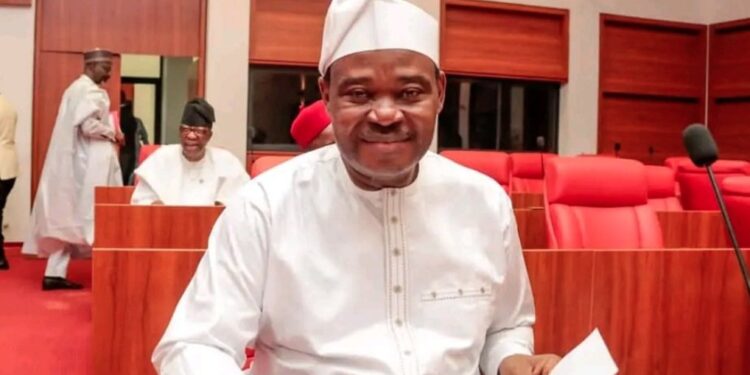Senator Jimoh Ibrahim has restated his position that the Nigerian economy cannot grow without the federal government borrowing to fund its obligations.
The federal lawmaker, representing Ondo South in the Senate, was responding to a question on his earlier position for more borrowings by the government.
While featuring on Channel TV’s Politics Today, Ibrahim stated that no country develops its infrastructural projects without seeking financial loans from foreign nations.
He noted that Dubai, UAE, with 12 million population has over $168 billion in foreign debt while Nigeria with ten times the population has about $77 billion in public debt.
The lawmaker said that borrowing will help the Federal Government to build critical infrastructure which will enable it to repay the loan in the long run.
- “If you don’t borrow to run the economy, what do you want to do? Where do you want to get the funds to run the economy? Dubai, with a population of 12 million people in total, is owing 168 billion dollars and look at what they have used the money to do. They are paying back now at 10 billion dollars a month.
- “Now, Nigeria, with a population of 250 million people, is owing 77 million dollars, now you have challenges here and there. So, the key issue here has to do with the fact that you must borrow to run the economy,” Ibrahim stated.
COP28 Delegates Too Small — Ibrahim
In addition, the Chairman of the Senate Committee on Inter-Parliamentary Affairs defended the number of delegations led by President Bola Tinubu at the COP28 Climate Summit in Dubai, UAE.
Recall that the government stated yesterday that the number of delegates sponsored by the federal government the 422 individuals as opposed to the 1,411 that was initially speculated after a public outcry.
Speaking of the development, Nigeria might want to host the event in the future and therefore the number of delegates from the country was justified.
According to him, the 422 persons who funded the event out of the total 1,411 Nigerian registered delegates at the summit weren’t enough.
- “Funding (over) 400 people to a conference like this is too small. You may want to host the conference sometime in future,” he said.
The number of delegates, he mentioned, plays a crucial role in shaping knowledge dissemination at the event, highlighting Nigeria’s challenges with the repercussions of environmental pollution.
The Senator insisted that the international community wouldn’t take President Tinubu as seriously if he was in Dubai with a lean delegation.
What you should know
As of June 2023, Nigeria’s debt to Gross Domestic Product (GDP) ratio stands at 38.4 %.
In addition, the Debt Management Office (DMO) says Nigeria’s debt service-to-revenue ratio in 2023 stands at 73.5%, describing the figure as unsustainable and a threat.
Therefore, the suggestion that Nigeria needs to continue to borrow to fund its economic obligations seems both controversial and ill-timed.
Nigeria’s total debt stands at N87. 38 trillion ($113.42 billion). It comprises the total domestic and external debts of the Federal Government of Nigeria, the thirty-six states, and the Federal Capital Territory.














